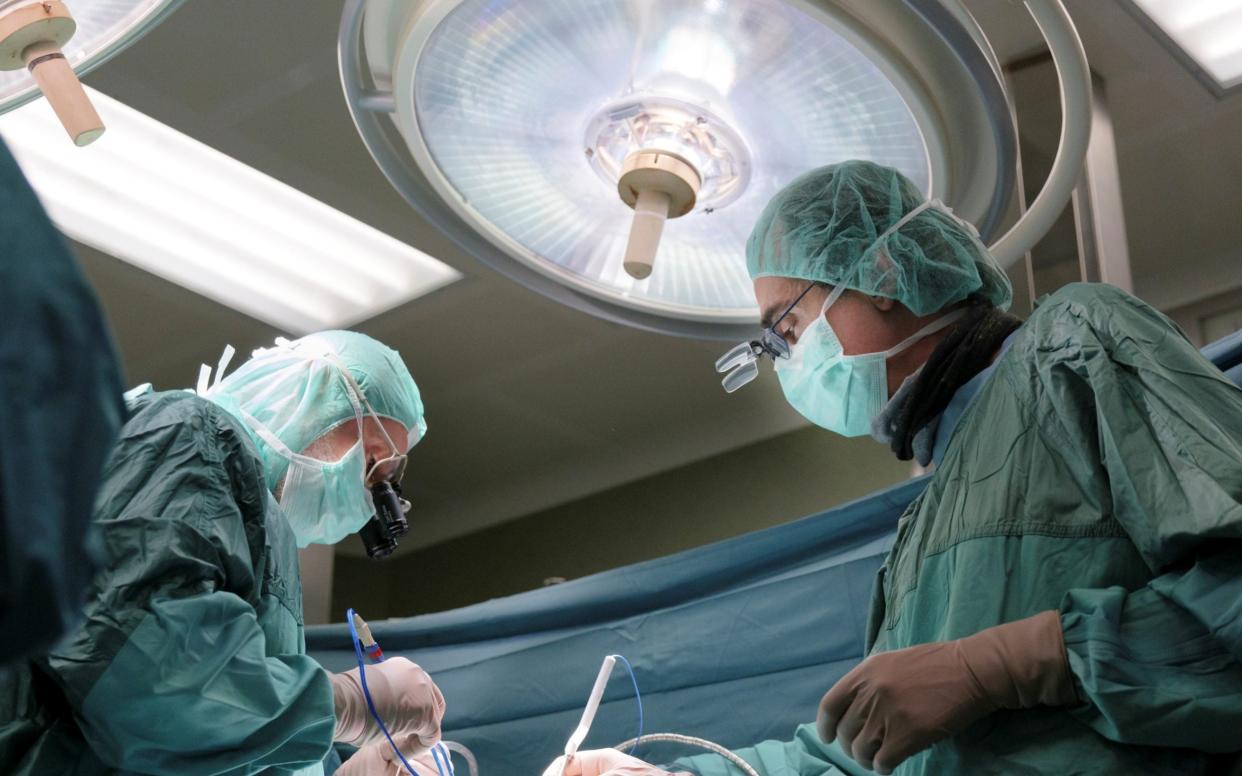Coronavirus: Pre-op rules are keeping people from vital surgery, warns senior doctor


A senior doctor has warned that patients are postponing elective surgery because of draconian pre-op coronavirus quarantine rules, as he calls for an overhaul of NHS guidelines.
Dr Helgi Johannsson, a consultant anaesthetist, said patients are cancelling operations to avoid putting their own jobs and their children’s education at risk because they are required to isolate their entire household for two weeks before relatively routine operations.
The medic fears such strict measures to ensure someone is coronavirus free before entering the operating theatre is deterring people from having elective surgery (procedures scheduled in advance because they are not a medical emergency).
His comments came after the Office for National Statistics estimated last week that one in 3,900 people had the virus, or 0.03 per cent of the population, down form one in 2,200 the previous week.
Under NHS England guidelines, any elective patient due to have those operations should only be admitted to hospital if they remain asymptomatic having “isolated for 14 days prior to admission along with members of their household”. Even then, they should have a “pre-admission test” to double check that they do not have Covid-19.
Dr Johannsson, 48, said: “We cannot put our patients at risk by making their access to healthcare so difficult they have to choose between having their operation and allowing their children to go to school.
“It also means that anyone whose job is in danger will not want to have surgery. Anyone looking after children cannot allow them to go to school if they want to have their operation.
“The chance of missing a Covid case is very, very, very small, and the disruption of self-isolation is very large.”
He explained how postponing relatively common procedures such as a hip replacement, a hernia operation or removing a gall bladder can store up severe and even life threatening health problems to a future date.
“Surgery is important to our nation’s health,” he continued.
“Elective surgery cannot wait forever. Hernias become strangulated, gallbladder disease can cause pancreatitis and death. Surely at the current prevalence rate insisting that patients self-isolate for two weeks is unnecessary?”
The doctor, who has 13-years’ experience as a consultant anaesthetist and is based in a London hospital, believes because all patients are screened with questions to see if they have symptoms before then being swab tested for the virus the probability of doctors missing someone with Covid-19 is between one in 50,000 to one in 100,000.
“One of my friends is waiting for a hip replacement. She doesn’t want to do it because she would have to self-isolate along with her family, and her daughter wouldn’t be able to go to school,” he said.
The anaesthetist posted his views on social media, prompting a flurry of responses including surgeons reporting how they had “struggled” to get patients who “desperately” needed surgery to self-isolate due to fears for their jobs.
Dr Johannsson explained how he had heard of one woman who had to delay her IVF until next year, effectively reducing her chances of having children.
He added how the pre-op guidance could technically discriminate against key workers, including hospital staff, who cannot work from home and so have to inform employers of personal conditions that others would not have to report.
An NHS spokesman said: “National guidance on preventing the spread of the virus in hospitals will remain under review based on the latest advice from the Chief Medical Officer, Public Health England and other experts.
“NHS staff delivered more than five million urgent tests, checks and treatments over the peak of the pandemic and continue to work hard to bring back as many non-urgent tests and treatments as possible, but the reality is that while Covid-19 still poses a threat extra requirements will need to remain in place for the safety of individuals themselves, other patients and our staff.”


